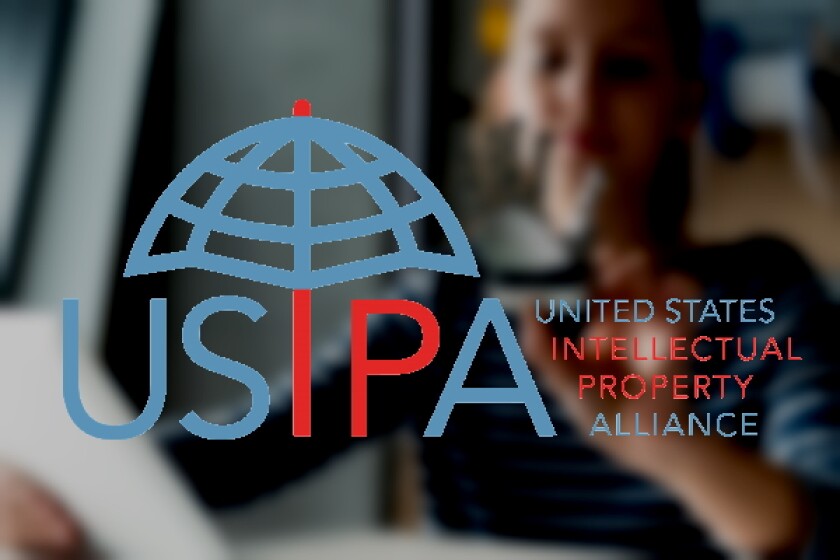Intellectual property leaders today launched the US IP Alliance, an organisation geared towards uniting IP groups, creators and owners in a mission to educate the general public across 50 states on the value of patents, trademarks, copyright and other forms of IP.
The national non-profit, which was spearheaded by AT&T IP CEO Scott Frank and modelled on the Georgia IP Alliance, has 60 board members from across the IP landscape, including representatives at the USPTO, AIPLA, IPO, Chamber of Commerce and state alliances in New York and Illinois.
The USIPA has a three-pronged mandate to drive awareness and education, enable ecosystem collaboration, and facilitate diversity and inclusion – goals it will look to achieve, in part, by co-ordinating the efforts of 11 state and local IP alliances, including the Georgia IP Alliance.
Frank, who is chair of the USIPA executive committee and has been AT&T's IP head for 15 years, tells Managing IP that the group is open to everyone who is interested in IP, and that he’s excited to get as many people involved as possible.
“One of the main things that differentiates us from other IP organisations is we’re not just IP professionals – we’re everyone in the US,” he says. “Our ultimate goal is to have every citizen in the US become a member.”
David Kappos, former USPTO director and partner at Cravath, Swaine & Moore in New York, and Paul Michel, former chief judge at the Court of Appeals for the Federal Circuit, will serve as vice chairs of the USIPA executive committee.
“The USIPA gives us an opportunity to knit together the fabric of IP organisations we have across this country and incredible diversity of them, and to increase the level of IP information flow and co-ordination at an appropriate local level,” Kappos tells Managing IP.
“We didn’t have anything like this before.”
Michel adds: “There is a huge need for better education about IP systems among policy makers and the general public. That need wasn’t previously being adequately met by prior efforts – which were useful and appropriate but not sufficient.”
Frank at AT&T had been seeking to launch a national version of the Georgia IP Alliance since at least late 2019, when he first told this publication about his intent to launch the USIPA, and perhaps even a Global IP Alliance.
He says a combination of the reception to that article and the COVID pandemic, which forced people across the US to work from home and made it easier to communicate with them by video conference, helped the USIPA become a reality sooner than it otherwise might have.
“The group’s establishment this year comes about in large part because of Managing IP,” says Frank. “It would have come about eventually anyway, but that article sparked a whole lot of emails and phone calls, which led to the creation of a lot of other state IP alliances over the past year.”
Kappos and Michel: more education was needed
Michel, who retired from the Federal Circuit in 2010 primarily so he could participate in discussions with Congress and other policy-making bodies on IP matters, says there is a dire need to escalate the scale of IP education among the public, the media, legislators, judges, and others.
“That education is desperately needed because of the growing problems in the US patent system, which has been in sharp decline for almost a decade, when we started getting decisions such as Bilski and Mayo on top of previous rulings such as eBay at the Supreme Court.
“Many biotech have gone out of business and many smaller companies have not been able to get the investment from funders that they used to get because the main guarantee of that investment was the patents.
“More education will help because policy makers hear from many sources – think tanks, academics, business leaders, for example – and the better informed those sources are, the more accurate the advice and analysis they can provide to the policy makers and their staff.
Kappos says the escalation of education was also a reason he joined the USIPA. He adds that the real strength of the new organisation and its ability to drive IP awareness lies in its connections with state and local communities.
“I became aware when I was running the USPTO that national organisations, as great as they are, can only go so far in reaching individuals. To do that, the work at a national level must be contextualised and managed locally by people in communities – and that’s a really hard scaling problem.
“For example, it’s not just New York City, it’s Brooklyn. And it’s not just Brooklyn, it’s Prospect Heights, and literally thousands of other communities.”
He adds that he wants to help continue this effort to build more regional and city-based chapters, which will help promote an understanding of IP in schools and colleges in those places.
More information about the USIPA, including upcoming events, the names of other executive committee and board members, and other local and state IP alliances involved, can be found on the organisation’s website.











